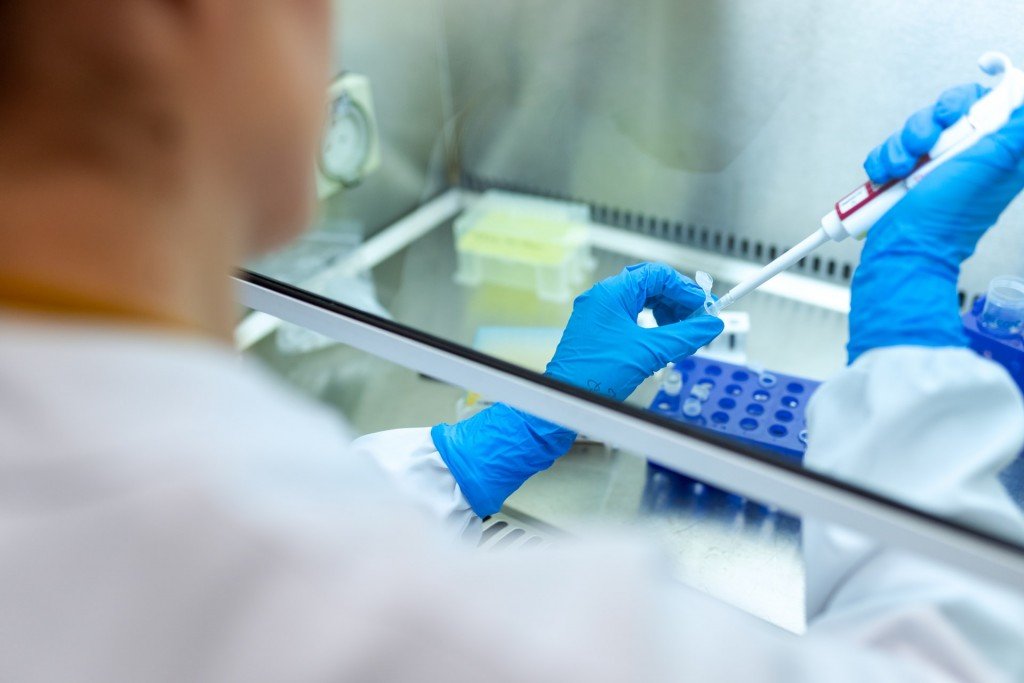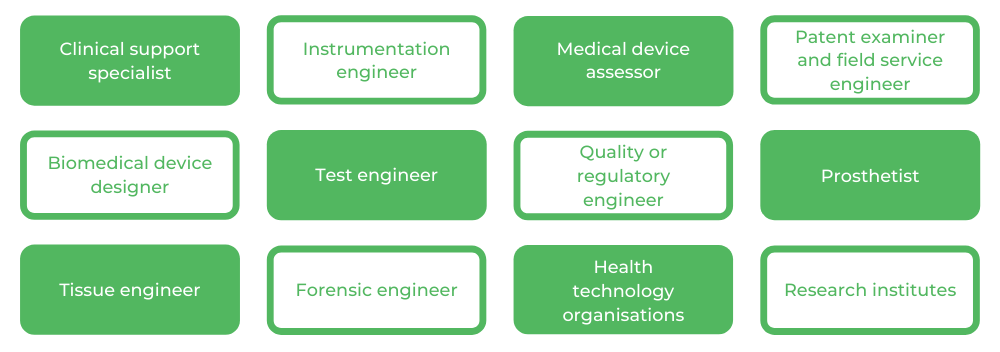
So you’ve got all the facts and figures you need to know about a Biomedical Engineering degree at USyd. But are you interested in what a real graduate thought about the degree?
We talked to Natalie, a Bachelor of Biomedical Engineering (Honours) graduate to find out about the good parts, the bad bits, what makes it different from other universities, career paths and more.
What are you waiting for? Let’s get into it!
Why should you study a Biomedical Engineering degree at USYD?
Top 3 Pros of a Biomedical Engineering Degree
Top 3 Cons of a Biomedical Engineering Degree
Mistakes You Shouldn’t Make
Things to Know Before Starting USYD Biomedical Engineering
What Makes this Degree Different
Motivations for Studying USYD Biomedical Engineering
Potential Career Paths
Why should you study a Biomedical Engineering degree at USYD?

An undergraduate biomedical engineering degree is the pathway into a rapidly evolving industry of innovative biotechnology solutions! Pursuing this degree will provide you with the skills you need to improve the lives of individuals with chronic health problems through bioengineering.
Top 3 Pros of a Biomedical Engineering degree
#1: Diversity of learning
One of the best things about a Biomedical Engineering degree is the variety of subject areas that you will learn about. Biomedical Engineering “draws knowledge from many disciplines — material science, statistics, anatomy, ethics,” said Natalie.
A Biomedical Engineering degree is not designed to narrowly focus on one specialty, but to cover a broad range of scientific learning.
#2: Flexible and dynamic
The Biomedical Engineering degree starts off broad so that students have the flexibility to change to other streams if this one doesn’t suit them!
“The degree is structured in a flexible and dynamic way to allow you the ability to explore various areas of biomedical engineering all at once,” said Natalie.
#3: Practical experience
Practical experience is an engaging way to apply theoretical knowledge across all Engineering degrees.
Biomedical Engineering practical work “combines the technical aspects of engineering with the experimental work of science,” said Natalie.
This practical aspect of the degree also contributes to its flexibility! “From running material strength tests to learning how to operate a PCR machine, the practical component of the degree covers almost all areas of STEM,” Natalie mentioned.
Top 3 Cons of a Biomedical Engineering degree
#1: Niche domestic industry
“With biomedical engineering still being a niche area in Australia compared to other engineering courses, some students may find it more difficult to attain internships without any opportunities created by the university,” said Natalie.
There are some new programs such as the Professional Engagement Program which may make internship or job hunting easier for students but compared to other streams, the opportunities for Biomedical Engineering are comparatively few.
#2: Time demanding
Like most engineering degrees, studying a degree in Biomedical engineering is no walk in the park. The degree demands constant and consistent dedication to many hours of in-person classes outside of independent study.
This leaves students with little time to take breaks or work part time through the semester. With the addition of a 600-hour Professional Engagement Program across your degree, time will be even tighter.
#3: Assumed knowledge
Unlike other engineering streams like Mechanical, where students are expected to have learnt high school Maths and Physics, a Biomedical engineering degree requires (or at least recommends) you to have a fundamental understanding of all the sciences — Physics, Chemistry and Biology as well as Mathematics.
Students who have not learnt the fundamentals of these areas may struggle in the beginning of their degrees and find themselves falling behind.
Any regrets?
“None that I can think of,” said Natalie. “The degree is definitely one of the most interesting ones out there and it is well organised overall.”
What do you wish you had known before starting Biomedical Engineering at USYD?
Broadening your learning
In terms of the content you’d be expected to learn and know, Natalie said to take on an all-rounder approach.
“The degree is challenging in the sense that you have to learn and take on very different tasks/projects. Excelling in one area does not carry you through the degree, you need to learn and excel in a wide range of areas — analysing data, conducting experiments, solving complex problems, presenting to peers, etc.”
What makes this degree different from the ones offered at other universities?
Employability
The University of Sydney is ranked 1st in Australia and 4th globally in the 2020 QS Graduate Employability Rankings.
Despite the relatively few graduate opportunities in Biomedical Engineering compared to other streams, “studying the degree at USyd will definitely boost your employability in the biomedical industry.”
What inspired you to choose Biomedical Engineering at USYD?
Natalie started studying at the University of Sydney in 2014. She enrolled in a double degree of Biomedical Engineering and Science (Neuroscience) and worked her way through until her graduation, 5 years later.
She said her dedication to her studies came from her “interests in the health area and in new medical technologies.”
Natalie shared, “The idea of potentially designing a new prosthetic or being involved with work around the bionic eye really inspired me to get into this field.”
What are the possible career paths?

USyd’s Biomedical degree prepares you for a whole number of different career options such as working in academia, medical research, hospitals and in industry areas.
“Since the degree covers a variety of disciplines, you are never limited to a single, or even two career paths,” says Natalie. These are some of the careers/fields you could end up in:
-
- Clinical support specialist
- Instrumentation engineer
- Medical device assessor
- Patent examiner and field service engineer
- Biomedical device designer
- Test engineer
- Quality or regulatory engineer
- Prosthetist
- Tissue engineer
- Forensic engineer
- Health technology organisations
- Research institutes
- Medical device companies
Depending on the industry you choose to enter, you could have the opportunity to work with cochlear implants, pacemakers, hip and knee prostheses, bionic organs, robotic limbs and pretty much any other piece of technology in the realm of medical science.
Alex Gao is an Art of Smart mentor and blogger who is passionate about teaching students the skills and know-how of high school. Alex has a great interest in the field of Biology, avidly blogging about the topic whilst also aspiring to become a Biomedical Engineer. Alex graduated in 2018 and was listed on the Distinguished Achievers list for Advanced English, Extension 1 English and Biology.


